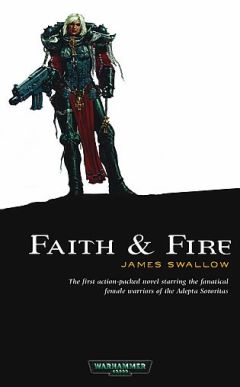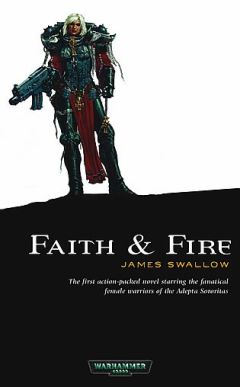Пользователь - WORLDS END
На электронном книжном портале my-library.info можно читать бесплатно книги онлайн без регистрации, в том числе Пользователь - WORLDS END. Жанр: Прочее издательство неизвестно, год 2004. В онлайн доступе вы получите полную версию книги с кратким содержанием для ознакомления, сможете читать аннотацию к книге (предисловие), увидеть рецензии тех, кто произведение уже прочитал и их экспертное мнение о прочитанном.
Кроме того, в библиотеке онлайн my-library.info вы найдете много новинок, которые заслуживают вашего внимания.

Пользователь - WORLDS END краткое содержание
WORLDS END читать онлайн бесплатно
Professor Alston, summoned to one session, described to his colleagues the curious spectacle of four elderly gentlemen who had spread a big map on the floor and were crawling round on their hands and knees, looking for bits of territory which they were going to assign to one nation or another. They were ignorant on many points of geography, and invented names for foreign places when they couldn't remember the right names; when the right ones were given they forgot, and went on using their inventions. Alston was violating no confidence in telling this, for Lloyd George had asked in Parliament: "How many members ever heard of Teschen? I don't mind saying that I never heard of it." Now, having heard of it, he took it from Austria and divided it between the Czechs and the Poles.
For ten days they had wrangled over the French and German boundary and got nowhere. They were exhausted, their tempers badly frayed. The peoples too were becoming hysterical; for where news was lacking rumor took its place. All parties continued to whisper the things they wanted to have believed, and the dozen Paris papers which Clemenceau controlled were denouncing the American President, lampooning him, cartooning him with shocking bitterness. Wilson was ill equipped for a struggle such as this; he was gentle, courteous, anxious to oblige people, and could hardly be brought to realize the nature of the forces being mobilized against him.
Clemenceau had his formula, from which he never varied: "This - or France has lost the war." Of course the President didn't want France to lose the war; he didn't want the responsibility of causing it to happen. He just hadn't realized what an inferno he was coming into. Many of his staff now urged him to go home; others begged him to take the American people into his confidence, telling them the real situation. He might not get what he wanted, but at least he would save his ideals intact and give the peoples of the world a glimpse of the forces that were wrecking Europe.
VIII
George D. Herron, distressed over these developments, left his home in Geneva and returned to Paris. He saw the President and afterwards told Alston and Lanny about it. Wilson was a sick man, paying the penalty of his temperament. As Herron explained it, he was lacking as an executive. "He knows how to judge himself, but not others; he knows how to drive himself, but not others; he can't trust anyone to write his speeches and memoranda, or even to typewrite them. The result is that he's overwhelmed. He and he alone is the American Commission to Negotiate Peace, and the number of matters he has to consider and decide are more than can be got into one human brain."
What troubled the President in this crisis was the fear of seeing Europe fall prey to Bolshevism. The French assured him that this would happen; and might it not be true? The American staff had prepared a map, with terrifying large red arrows pointing into Lithuania, Prussia, Poland, Hungary, the Ukraine, Georgia. If Wilson were to break off negotiations and take the American army home, the Germans might refuse to sign the peace treaty, the war might start again, and revolts might follow in Paris and even in Britain.
A young member of the Crillon staff had been picked by the President and sent to Moscow. "Bill" Bullitt was his name, and he had taken with him a journalist friend, once famous as a "muckraker." In the days when Lanny had been a toddler on the beach at Juan, this man had been traveling over the United States probing into political corruption, interviewing "bosses" and their big-business paymasters. Latterly his work had been forgotten, and Lanny had never heard the name of Lincoln Steffens until he was told that the "Bullitt mission" had set out for the land of the Reds.
They had come back with surprising news. Lenin wanted peace, and was ready to pay almost any price for it. He would give up all Siberia and the Urals, the Caucasus, Archangel, and Murmansk, even most of the Ukraine and White Russia. He would recognize all the White governments. But, alas, President Wilson had a severe headache that evening, and Colonel House also was ill. Bullitt saw Lloyd George first and told him the terms; Wilson, on the verge of a nervous breakdown, was so angry at this slight that he wouldn't see Bullitt, he wouldn't hear of peace with wicked Bolsheviks. And Lloyd George stood up in the House of Commons and denied that he had ever known anything about the Bullitt mission!
All this suited the French, who didn't want peace under any circumstances. They were being beaten, but dared not admit it. They were having to back out of the Ukraine; their armies were becoming unreliable - this dreaded new kind of war, fought not merely with guns but with ideas. War-weary soldiers listened, and began to whisper that maybe this was the way to end matters. There were mutinies in the French fleet in the Black Sea, and when Colonel House was asked by newspapermen about Odessa, he replied: "There's no more Odessa. The French are clearing out." British troops, ordered to embark at Folkestone for Archangel, refused to go on board. No use to look for such events in newspapers, whether British or American; but the staff at the Majestic knew, and Fessenden gossiped to Lanny with wide-open startled eyes. "For God's sake, what's-going to happen next?"
IX
Lanny kept thinking he ought to hear from Kurt; but no word came. He wondered about his Uncle Jesse, whether he was getting more money and what he was doing with it. Having a couple of hours off one afternoon, Lanny yielded to the temptation and turned his steps in the direction of Montmartre.
It was the first day of April; bright sunlight, blue sky, fleecy white clouds; crocuses blooming in the gardens, daisies in the grass of the parks; the trees just far enough in the bud to show a pastel green. The poor frightened world was coming out of the winter of war; Lanny, climbing the hill, carried a thought which by now had become his familiar companion: Why, oh, why did men have to make their lives so ugly? What evil spell was upon them that they wrangled and scolded, hated and feared?
He climbed the stairs in the dark hallway which hadn't yet learned that winter was over. He knocked on his uncle's door, and a voice called: "Come in"; he did so, and saw there was a visitor, seated in the extra chair from which a load of books and papers had been dumped. He was a short, compactly built man with brown hair and small gray imperial and mustache trimmed neatly; a rather square face with glasses, and small blue-gray eyes with many wrinkles around them, giving him a quizzical appearance. The visitor was plainly but neatly dressed, and you would have taken him for a small businessman, or perhaps a college professor. Said Uncle Jesse: "This is Lincoln Steffens."
Lanny was surprised', also pleased, and showed it. "I've been hearing about you at the Crillon!"
"Indeed," said the other. "I've been trying to figure out a way to let them know I was in town."
When Lanny knew him better he would understand such teasing remarks. As it was, he decided to be frank, and said: "You know how it is - they're a bit afraid of you."
"That's why I came to see your uncle," replied the journalist. "One man who might be interested to hear about the future."
"Stef has spent a whole week in the future," explained the uncle, with one of his twisted smiles.
Lanny took his seat on the cot, which had become familiar to him. Because it sank down in the middle it cut his knees, so presently he stretched out on it, leaning on one elbow. In this position he listened for an hour or more to an account of one of the great events of human history.
For a matter of seventeen months now Lanny had been hearing about the Bolshevik Revolution. Again and again he had been told how one-sixth of the. earth's surface had been seized by bloodthirsty ruffians, more cruel and cunning than any that had ever before plagued the earth. He had seen all the policies of his own country and a number of others based upon that certainty. The fact that his Uncle Jesse believed in and supported these devilish creatures merely meant that his uncle was "cracked" in some serious way, and must be dealt with as you "would with an inmate of a home for mental patients.
But here sat this correct-looking middle-aged gentleman, who had been sojourning among these Reds, and not merely hadn't had his throat cut or his watch stolen, but apparently hadn't even got his clothes wrinkled. He had an unusually pleasing voice and poured out the details of what he so oddly called "the future." Apparently this wasn't one of his jokes; he really thought the world was going to be like that. Lanny, who was going to live in the future, naturally wanted to know about it.
He learned that in this new world everybody would have to work. That didn't trouble him so much as it would have done three months earlier, for now he was working. As it happened, he was being paid by the state, so it didn't worry him to hear that this was the way among the Soviets. When he heard that the state was preparing and serving meals to workers in factories, it sounded very much like what was happening to him and the rest of the staff at the Crillon. In Russia, to be sure, they had only one meal a day, and that scanty; but "Stef" said that was due to five years of war and revolution, and to civil wars now going on over a front of ten thousand miles. What there was, all shared alike; that being the first principle of "Communism."
What, then, was the difference between America and Moscow? The "muckraker" said it was a question of who owned the state. In America the people were supposed to own it, but most of the time the big businessmen bought it away from them. "It is privilege which corrupts politics," was his phrase. He explained that among the Soviets it was soldiers and sailors, workers and peasants, who had seized power; capitalists had been abolished. Now there was war between these two kinds of states, and it looked as if it was going to be a war to the finish.
X
Lanny Budd was interested in this news, and no less in the envoy who brought it. What an eccentric little man, he thought. Why should a scholarly person, of breeding and presumably of means, take the side of those underworld figures against his own class? He took it only partly, as Lanny soon began to understand; there appeared to be a war between his heart and his head, and you could almost watch this conflict going on. Stef would become eager and excited, and then would check himself. "If I go too fast," he would say, "people won't listen to me. And, besides, I may be wrong." He would proceed to put some "ifs" and "buts" into his discourse.
Steffens was like Herron, a pacifist and a moralist first of all. He wanted a revolution, but one of the mind and spirit; he was pained by the thought that it might have to be bloody and violent. Did we want such an overturn in western Europe? Could we pay the price?
Jesse Blackless, for his part, was sure that we were going to pay it, whether we wanted to or not. There developed an argument between the two men, to which Lanny listened with close attention. The painter foretold how the Allied armies would continue to decay, and the Red movement would spread to Poland and Germany, and from there to Italy and France. The painter knew it was coming; he knew the very men who were preparing to do the job. Stef looked at Jesse's nephew with a twinkle in his little blue-gray eyes and said: "It's nice to have a religion, Budd. Saves all the trouble of having to think."
A curious experience to Lanny to hear Bolshevism referred to as a "religion," even in jest. But he understood when the reporter described the wave of fervor which had seized upon the people of Russia, victims of many centuries' oppression, sunk in unspeakable degradation - and now suddenly finding themselves masters of a mighty empire, and setting to work to make it into a workers' and peasants' co-operative. People were hungry, they were ragged, half-frozen all winter, but in their eyes was a feverish light and in their hearts was hope, vision, a dream of the future. From the unformed, unregarded mass, from soldiers and sailors and factory workers and peasants, had come new leadership, new statesmanship. . . .
Steffens had talked for hours with Lenin: that studious, shrewd little man who had watched the storm gathering and seized the proper hour to strike. "From now on we proceed to build Socialism," he had said quietly, the day after the coup. As Steffens described him, he knew more about the Allied statesmen than they new about themselves. He understood the forces confronting the Soviets; and while the bourgeois world sent armies against him, he would send fanatics, men and women who hated capitalism so much that they were willing to give their lives to undermine and destroy it. "Men like your Uncle Jesse," said Stef, with his sly smile; and Lanny understood, even better than Stef could have imagined.
Lanny was sorry that he had to leave. He summoned his courage and asked if Mr. Steffens would have lunch with him at the Crillon. The other advised him to think it over for a day and then call him. "Colonel House is the only other member of the staff who would have the courage to invite me just now!"
XI
The young fellow who had attempted to kill Clemenceau had been tried and sentenced to death, but the Premier had been persuaded to commute his sentence. The one who had killed Jaurиs had been held in prison for nearly five years, because the authorities were afraid to try him during wartime. Now the trial was held, and the lawyers who defended him did so by seeking to prove that Jaurиs had been disloyal to his country. So it became in effect a trial of the Socialist leader, and he was found guilty, while the assassin, whose name, oddly enough, was Villain, was acquitted.
The result was a mighty demonstration of protest by the workers of Paris, culminating in a parade in which the red flag was carried for the first time since the armistice. Lanny stood on the street corner and watched it go by, in company with his new friend Steffens. Each of them had his thoughts and did not say them all. Lanny saw his Uncle Jesse marching in the front ranks, looking very determined - but doubtless quaking inside, because no one knew if the police would try to stop the parade, and it might be a killing matter if they did. The nephew thought: "Kurt had something to do with this"; and again: "I wonder if he's watching."
The same crowd that Lanny had observed at the rйunion; the same sort of persons, and in many cases no doubt the same individuals: men and women, hungry, undernourished from childhood, with pale faces set in grimmest hatred. Lanny knew more about them now; he knew that they meant blood, and so did their opponents. The submerged masses were in revolt against their masters and sworn to overturn them. A few weeks ago Lanny would have thought it was a blind revolt, but now he knew that it had eyes and directing brains.
He noticed how few of the marchers looked about them, or paid any attention to the watching crowds. They stared before them with a fixed gaze. Lanny remarked this to his companion, who replied: "They are looking into the future."
"Do you really want it, Mr. Steffens?" Lanny asked him.
"Only half of me wants it," replied the muckraker. "The other half is scared." He meant to say more, but his words were drowned by the menacing thunder of the "Internationale":
Arise, ye pris'ners of starvation,
Arise, ye wretched of the earth;
Похожие книги на "WORLDS END", Пользователь
Пользователь читать все книги автора по порядку
Пользователь - все книги автора в одном месте читать по порядку полные версии на сайте онлайн библиотеки My-Library.Info.



